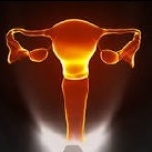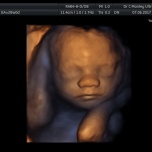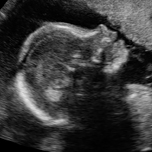There is much information to absorb at your initial antenatal visit so you may wish to consider some issues before you arrive. There are now several prenatal screening tests available as outlined below. We offer the full range of options in prenatal screening to our patients.
We understand that our patients have unique needs and differing risk for foetal anomalies and we tailor our care to each individual.
We believe that it is our patient’s individual decision as to whether they wish to proceed with any or all of these screening tests.
prepair™ genetic carrier screening
prepair™ identifies if a person is a carrier of Cystic Fibrosis (CF), fragile X syndrome (FXS) or spinal muscular atrophy (SMA). These conditions are amongst the most common inherited genetic conditions in the Australian population.
Many people are carriers of these genes even though no one in the family has the condition. The test is performed on a simple blood sample and ideally is performed before pregnancy or in early pregnancy (before 12 weeks.
Having the test prior to pregnancy allows time to consider your options if you find out you are a carrier for CF, FXS or SMA.
Click here to visit the Victorian Clinical Genetics Services (VCGS) for further information on genetic carrier screening offered to individuals and couples who are considering or are in early pregnancy.
Non-Invasive Prenatal Testing (NIPT)
Launceston Obstetrics & Gynaecology offers NIPT to all their pregnant patients. The NIPT offers parents-to-be an accurate non-invasive test as early as 10 weeks’ gestation.
NIPT screens for Down syndrome (Trisomy 21), Edwards syndrome (Trisomy 18), Patau syndrome (Trisomy 13) and sex chromosome aneuploidies (such as Turners syndrome and Klinefelter syndrome) with 99.9% accuracy.
A maternal blood sample is taken and sent to Melbourne for assessment. Results are usually available in 5 working days. This test is not supported by Medicare and the cost of the test is now approximately $400.00.
Click here to view the Victorian Clinical Genetics Services (VCGS) percept brochure.
Maternal serum screening (MSS)
Maternal serum screening is performed on a maternal blood test at 10 -13 weeks’ gestation and gives information about the chance of having a baby with a chromosomal abnormality, such as Down syndrome.
Serum screening also provides additional information about pregnancy health including the increased risk of preeclampsia or foetal growth restriction.
Combined first trimester screening is performed usually between 10 to 13 weeks gestation and combines the results of placental proteins (PAPP-A and free beta hCG), a nuchal translucency ultrasound (NT scan) at 11-13 weeks and maternal age, weight and gestation to provide a percentage risk of the pregnancy being affected by a chromosomal anomaly such as Down syndrome.
Click here to visit the Victorian Clinical Genetics Services (VCGS) for further information on Maternal Serum Screening (MSS).
Chorionic Villus Sampling (CVS) and Amniocentesis
CVS is a procedure that collects a small sample of placental tissue and amniocentesis is a procedure which collects fluid from around the foetus which contains foetal cells.
The cells of the placenta and those in the amniotic fluid have the same genetic material as the foetus and can therefore be tested for genetic abnormalities such as Cystic Fibrosis or thalassaemia and chromosome anomalies such as Down syndrome.
CVS and amniocentesis are generally offered to patients who are at high risk of chromosomal or genetic abnormalities.
This may include;
- Increased or high risk first trimester screen results (NIPT or first trimester Combined Screening)
- Increased nuchal translucency or other abnormal ultrasound findings
- Family history of a chromosomal abnormality or other genetic disorder
- Parents are known carriers for a genetic disorder
- Advanced maternal age
CVS and amniocentesis are performed by an Obstetrician Sonologist (specialist ultrasound obstetrician) under ultrasound guidance. The skin of the lower abdomen is cleansed with an antiseptic and the skin and underlying tissue injected with local anaesthetic.
Under continuous ultrasound vision a fine needle is guided into the placenta and the biopsy of the placenta (chorionic villi) is taken, or into the amniotic fluid with amniotic fluid being withdrawn (for amniocentesis ). The placental sample is sent to the Victorian Clinical Genetics Services (VCGS) for analysis.
CVS and amniocentesis are performed between 11 and 15 weeks’ gestation and an amniocentesis is performed after 15 weeks’ gestation.
The results of the investigations are generally available in 2 weeks depending on the condition being tested for.
Both CVS and amniocentesis are invasive tests with an associated risk of miscarriage (approximately 1 in 500). They are not “routine tests”, generally only being offered to patients at high risk of foetal anomalies.





